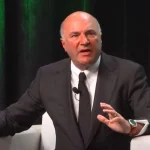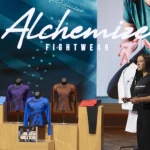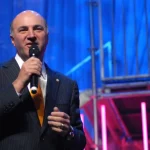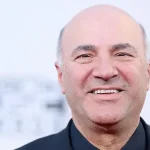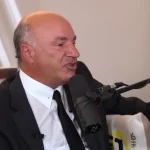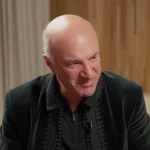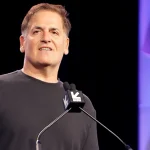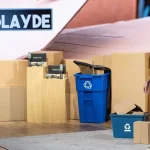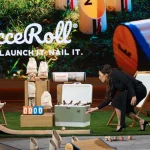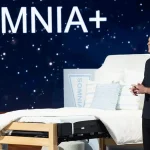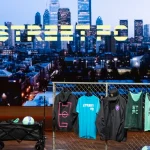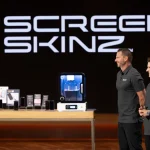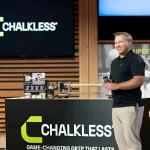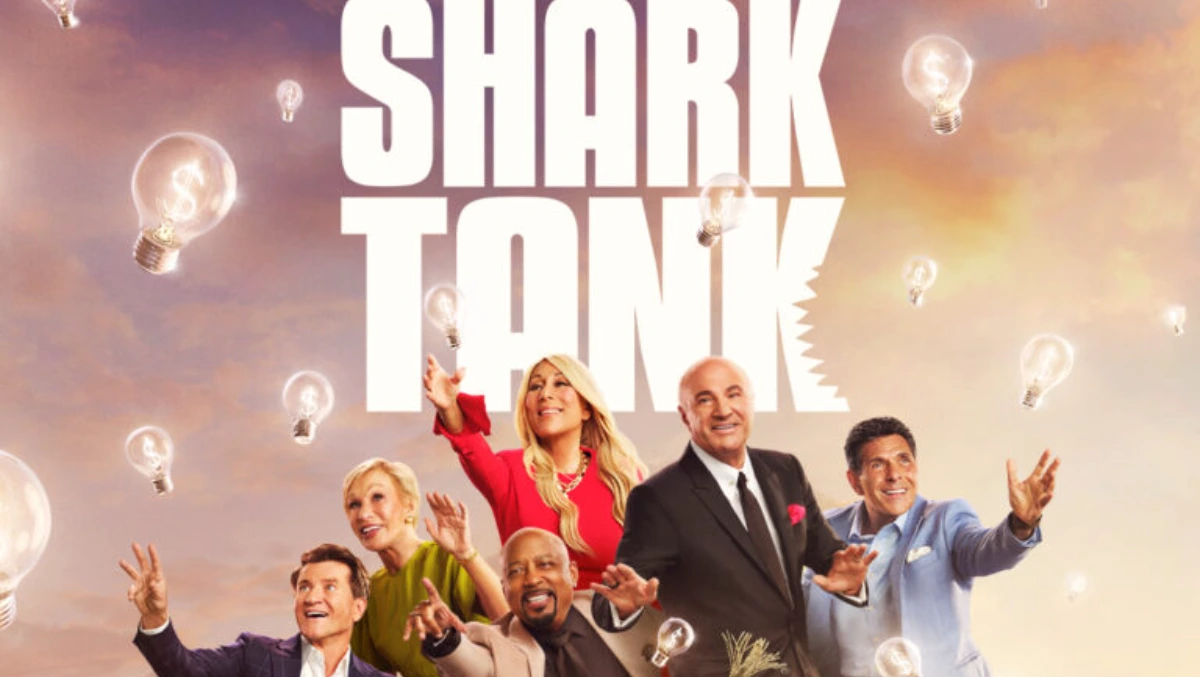
When you watch Shark Tank, you see hopeful entrepreneurs passionate about their businesses. At times the Sharks give flyers, while sometimes they decide to pass. However, amongst all these pitches, there are some brands that exploded and became billion-dollar companies. Thus, let’s have a closer look at the top 10 most successful brands of the year 2025.
Bombas—A comfort-focused brand
Bombas appeared on “Shark Tank Season 6 Episode 1,” and it marked the gold standard of Shark Tank success stories. Randy Goldberg and David Heath started off as a socks brand; however, now it is a billion-dollar apparel company.
In 2024, Bombas earned $2 billion in lifetime sales. Also, they donated over 150 million socks and other accessories to the needy people.
Additionally, the brand’s buy-one-give-one business model isn’t just a philanthropic approach. Rather, this engine leads to repeat customers, long-term growth, and brand loyalty.
Scrub Daddy—The Smiley Sponge
Scrub Daddy, the smiley sponge brand, appeared on “Shark Tank Season 4 Episode 7,” with a vision to manage all sorts of house cleaning tasks. Aaron Krause secured a deal with Lori Greiner for $100K in exchange for 20% equity, and that’s when the success story of Scrub Daddy began.
Moreover, with over 160 stock keeping units (SKUs) and an annual revenue crossing $220 million in 2023, the product became a retail juggernaut. The product is currently available across all major retailers and online platforms.
Additionally, the product is functional and perfect for cleaning in both hot and cold water. Though Scrub Daddy’s customers enjoy the novelty of the sponge, they keep on coming back for its utility.
Cousins Maine Lobster—A Billion-Dollar Franchise
Cousins Maine Lobster’s appearance on “Shark Tank Season 4 Episode 6” changed the street food scene. The brand began with opening food trucks in Los Angeles and feeding their famous lobster rolls, which now have scaled into a franchise model. Barbara Corcoran invested $55,000 for 15%, and as of today it’s one of the most successful companies in her portfolio, crossing $1 billion in sales.
Recently on Shark Tank Season 17, she offered an opportunity in partnership with Cousins Maine Lobster for a new restaurant concept featuring Matzoh Ball Ramen. Also, they play by the book, combining strong PR moments and disciplined franchise operations.
Ring—The Billion-Dollar No-Deal Exit
Jamie Siminoff started this billion-dollar brand, Ring (earlier known as Doorbot), pitching his product on “Shark Tank Season 5 Episode 10.” It was the world’s first smartphone doorbell, though almost all the Sharks did not see market potential; only Kevin O’Leary made an offer.
The business was sold to Amazon for $1 billion, a fascinating amount. Instead of just earning, Ring made a path to an entirely new category of house security and smart doorbells. Thus, it leveraged the power of Amazon distribution.
Kodiak Cakes—Protein Pancakes That Transformed Into a Grocery Staple
Joel Clark, along with Cameron Smith, pitched their grandfather’s recipe on “Shark Tank Season 5 Episode 22.” The recipe for Kodiak cakes is a household staple, without the need of any Shark’s funding.
In 2024, their revenue stood at $200 million. The product is driven by high-protein pancake and waffle mixes. Thus, it shows how positioning matters and can lead to massive growth.
Squatty Potty—A Bathroom Product
Bobby Edwards and Judy Edwards appeared on “Shark Tank Season 6 Episode 9,” pitching a stool that leads to natural bowel movements. Squatty Potty secured the deal with Lori Greiner of $350K in exchange for 10% equity, using humor and emphasizing health benefits in a unicorn-plus-rainbow ad.
In 2021, Aterian acquired the product made for every house for $24.1 million. Moreover, in 2023 the product crossed more than $260 million in lifetime sales.
The Original Comfy—The Blanket You Wear
The Original Comfy was pitched on “Shark Tank Season 9 Episode 10,” an oversized sweatshirt blanket. Commenced by two brothers, the Comfy transformed its product into a wearable blanket, which later became a global hit.
The soft microfiber exterior of the blanket grew from a holiday launch to a $75 million revenue-making brand in 2021. Currently, the brand ships the product in more than 80 countries. Moreover, its charm was backed by the Shark Barbara Corcoran.
Simply Fit Board—QVC to Big-Box
The brand, Simply Fit Board, was started by a mother-daughter duo and appeared on “Shark Tank Season 7 Episode 7.” The product added a twist to how the motion works: a plastic board that forces you to stay balanced, burn fat, tone the legs, and strengthen the core.
The catchy and fascinating television demo of this fitness product lured the audience. Thus, in less than six years of getting investment from Lori, it gained over $160 million in retail sales. Moreover, its distribution was available in more than 50,000 retail doors.
Tipsy Elves—Ugly Sweaters, Huge Profits
Tipsy Elves appeared on “Shark Tank Season 5 Episode 12” and turned ugly Christmas sweaters that were both inappropriate and tacky into a million-dollar brand. Along with sweatshirts, they sold other accessories, becoming a successful apparel brand.
Earning more than $125 million in their lifetime sales, they expanded beyond holidays. Further turning into a direct-to-consumer savvy lifestyle brand, along with viral designs.
Plated—The Meal Kit
Plated is a gourmet meal delivery service that appeared on “Shark Tank Season 5 Episode 28.” Its journey was extremely impressive, as the founders took gourmet dishes and served the ingredients to customers’ doorsteps.
However, it did not rely on the direct-to-consumer shipping model and further transformed into supermarket shelves. The meal kit is still very popular, while the brand was sold to Albertsons for $175-200 million.
What These Winners Teach Us About Scale in 2025
Looking at these ten companies, certain themes emerge, and they reveal why some Shark Tank ideas didn’t just win a deal but won big:
- Mission and repeatability: Bombas built its empire based on a repeat-purchase model that was socially driven.
- Demo-ready products: Scrub Daddy and Simply Fit Board used the influence of television and QVC to demonstrate the product and drive sales.
- No deal doesn’t mean you lose: Moreover, brands like Kodiak Cakes and Ring were not offered any deal on the Tank; nevertheless, they built business empires. At times, timing and distribution matter the most.
- Channel Diversification Wins: Plated is a prime example. It didn’t rely solely on direct-to-consumer subscriptions. By entering retail, it unlocked a far larger customer base.
Takeaway
A scalable business model, a great idea, and consistent execution turn start-ups into multi-million-dollar brands. Hence, the next time you watch Shark Tank as an entertainment reality show, think about these companies that transformed the lives of many people, further becoming household names.


